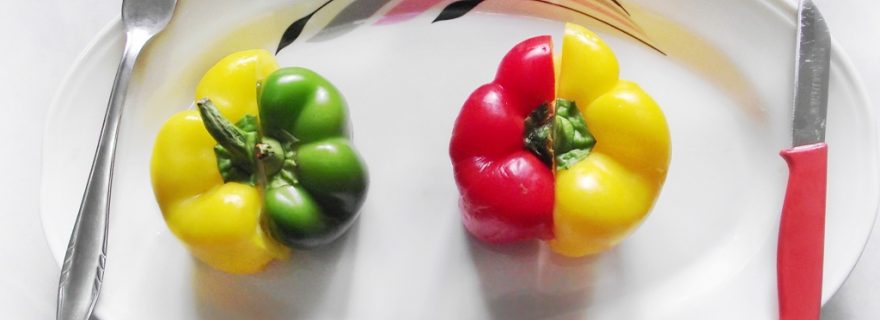Are we what we eat?
'Der Mensch ist, was er iβt' (you are what you eat) is a famous quotation from the German philosopher Feuerbach, suggesting that the food one eats has a bearing on one's state of mind. Can food function as cognitive enhancer?
In his seminal essay 'Concerning Spiritualism and Materialism' (1863), one of the most famous statements of the German philosopher Ludwig Feuerbach is Der Mensch ist, was er iβt (you are what you eat). Feuerbach, well-known for his materialist approach, was the first intellectual to promote the thought that the food one eats has a bearing on one's state of mind. This thought became later the motto of the hippie culture based on eating organic and healthy food.
Since then, the idea that the food we intake modulates the way we think and perceive the world has been very suggestive in popular culture. Indeed, the idea that food may function as cognitive enhancer is very intriguing, especially for students who are always searching for new ways to improve their academic performance.
What is the biological mechanism underlying the idea that we are what we eat?
One of the most frequently investigated amino acids (building blocks of proteins) is tyrosine, which is contained in food such as fish, soy, eggs, milk and bananas. In healthy population the average daily intake of tyrosine is 7mg/kg, one half of the WHO’s upper requirement of 14mg/kg. Tyrosine is the precursor (the chemical that precedes another compound in the biochemical pathway) of dopamine—the major modulator in regulating cognitive control, the way we control our thoughts and goal-directed behavior.
It is well known that the supplementation of tyrosine, or tyrosine-containing diets, increases the plasma tyrosine and enhances brain dopamine release. Accordingly, it is the interplay between tyrosine, dopaminergic supply, and cognitive functioning that may be the biological mechanism underlying the thought that the food one eats has a bearing on one's state of mind.
Remarkably, the supplementation of tyrosine or consuming tyrosine-rich food to improve cognitive processes is safe and healthy and can be regarded as an alternative to cognitive-enhancing drugs, such as Ritalin or Modafinil, which use, unfortunately, is quite popular among students to improve their academic performance. These prescribed drugs, in contrast to the food supplement tyrosine, do not have FDA (U.S. Food and Drug Administration) GRAS (Generally Recognized as Safe) status and are often associated with side effects commonly experienced with amphetamine-like drugs. Moreover, again, in contrast to tyrosine, they are known for facilitating addiction in vulnerable individuals. Also, “an overdose” on these drugs is not infrequent when people take a higher dose than prescribed.



8 Comments
Tyrosine can definitely enhance concentration, though it should be noted that many attention problems come from chaotic or pathological thinking.
If for instance a person's lack of attentiveness is the result of an inability to filter out distractions (external or internal), then increasing the overall concentration may not improve the situation.
But as the article said, it may be a much saver alternative to ritalin and modafinil to increase attention in otherwise healthy individuals.
And perhaps when used in conjunction with SSRI's to treat ADHD, lower dosages of SSRI's are needed to achieve the desired effects..?
"Is it possible to overdose from tyrosine" Life is six of one and haldf a dozen of the other. "Tyrosine and phenylalanine were found to be the main melanin precursors." http://www.ncbi.nlm.nih.gov/pubmed/6511810 :)))
In some vegan hindi cultures it is adviced not to eat fish, because it gives bad thoughts.
I think there is a lack of protein (including essential amino acids such as tyrosine) in vegan diets in general. What most vegans are not aware of is that the brains of humans have evolved from a drastic increase in the amount of healthy fats and protein when primates moved out of the forests and started consuming more wild game by hunting animals (and later on fish). Our bio-chemistry is not designed to consume a diet that lacks in healthy fats and animal protein. Our brain and body functions better when eating foods it thrived on in nature.
Vegans can "compensate" by eating soy and nuts which are very rich in torsine
What about vegans? There is no intake of eggs or fish, or milk, or anything animalistic. What does it mean for them?
No, it is not possible to overdose from tyrosine because our body has only a limited amount of tyrosine hydroxylase, the enzyme which converts tyrosine into dopamine.
Is it possible to "overdose" from tyrosine ?